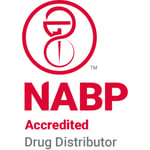Unit-dose repackaging is here to stay. Whether your hospital or health system pharmacy packages in-house or outsources with a unit-dose repackaging company, there are always questions about how to best manage or streamline the process. With that in mind, Safecor Health has compiled the 10 most frequently asked questions our team receives about how to maximize efficiency, safety and costs with unit-dose repackaging.
To outsource or not to outsource — what's best for your hospital pharmacy?
- Q: Will it cost more money to outsource rather than repackaging unit-dose medications within our pharmacy?
A: Many hospital pharmacies save an average of $400-$700 per patient bed when they outsource unit-dose repackaging. Equipment, labor and space considerations must be factored into the decision of whether or not to manage the process in-house. Safecor Health offers a free ROI calculator to help pharmacy directors make the best decision for their organizations. Download this free tip sheet for step-by-step instructions to use the calculator. - Q: What drugs can be repackaged into unit doses?
A: Safecor Health offers unit-dose repackaging of oral solids, oral liquid cups, oral liquid syringes, ENFit syringes, controlled substances and hazardous drugs. - Q: What types of drug repackaging can not be outsourced?
A: There is a very short list of medications that cannot be repackaged at Safecor Health. These include: - Beta lactam antibiotics (i.e. penicillins and cephalosporins) – FDA restriction on all re-packagers
- Some high potency chemotherapeutic medications
- Select HIV medications – due to manufacturer recommendations
- Products that are very hygrospoic (ex. MagDelay)
- Nitroglycerine SL
- Pancrelipases (exception: Safecor Health does repackage some strengths of Creon with limited dating)
- Drugs where the manufacturer states “dispense in original container” on the drug label
- Q: Can a repackager offer different label and bar code options based on what my pharmacy needs?
A: Yes. Safecor Health provides customers with standardized and regulatory-compliant unit-dose labels and bar codes. Our unit-dose labels incorporate best practices from FDA, USP, ISMP and ASHP regulations and guidance, resulting in high-quality, readable unit-dose labels and scannable bar codes. Learn more about Safecor Health bar coding and labeling. - Q: How are unit-dose repackaging companies licensed?
A: Safecor Health is registered with the FDA and licensed by the DEA, applicable state boards of pharmacy, and other state and federal agencies as required. Safecor Health repackages oral, non-sterile medications according to the original manufacturer guidelines and in compliance with FDA cGMP repackaging guidance. Safecor Health is NOT a 503B compounding pharmacy and does NOT manufacture or compound any injectable or sterile pharmaceutical products. - Q: Does Safecor Health support the repackaging needs of multi-site and multi-state health systems?
A: Yes. Local, regional and national health systems can greatly benefit from a strategic repackaging relationship with Safecor Health — even those health systems using: - Central fill pharmacy operation models
- Central warehouses or shared services facilities
- Consolidated pharmaceutical repackaging and distribution
- Q: Can I use my own wholesaler if I partner with Safecor Health?
A: Yes. Safecor Health works closely with all of the major drug wholesalers including AmerisourceBergen, Cardinal Health, McKesson and Morris & Dickson. These unique supply chain relationships and BILL TO/SHIP TO accounts enable institutional pharmacies to purchase medications on-contract and on-formulary from their wholesaler (with the cost of goods discount applied).
Medication purchases are delivered by the wholesaler to Safecor Health where we verify and receive the order, repackage the items in the format and dosage size requested by your pharmacy, and ship the completed repackaging order directly to your pharmacy, ready to use.
How does a hospital pharmacy get started working with a unit-dose repackaging partner?
- Q: How does a unit-dose repackaging partnership work?
A: Customers work with Safecor Health in a variety of ways. Some outsource all unit-dose repackaging needs with us, while others opt for a combination approach. All customers know that when their unit-dose medications are repackaged with Safecor Health, they save time and money while enhancing patient safety. - Q: I have more questions about outsourcing our unit-dose repackaging. Who do I talk to?
A: You can contact the team directly. Or, Safecor Health offers a full resource directory filled with articles, videos, case studies, infographics and ebooks dedicated to helping your pharmacy optimize its operations. - Q: How do I get started with Safecor Health?
A: Contact Safecor Health to obtain your customer account setup paperwork and basics for getting started. We will need your completed setup paperwork, DEA and State Board of Pharmacy licenses. Once we receive your paperwork, you’ll need to contact your wholesaler representative to establish a bill to/ship to ordering account on your wholesaler’s ordering system. Be sure to request GPO/WAC/340B accounts as needed.
Work with our sales and implementation teams to ensure we have the repackaging formats, dosage sizes for oral liquids, and bar code content your pharmacy needs for the specific NDCs your pharmacy will order and repackage. We can also help your pharmacy establish a packaging formulary.The transition to placing an order with Safecor Health versus placing your usual orders is simple. Safecor Health works closely with all major wholesalers to allow your pharmacy to place orders directly through your wholesaler ordering platform.



